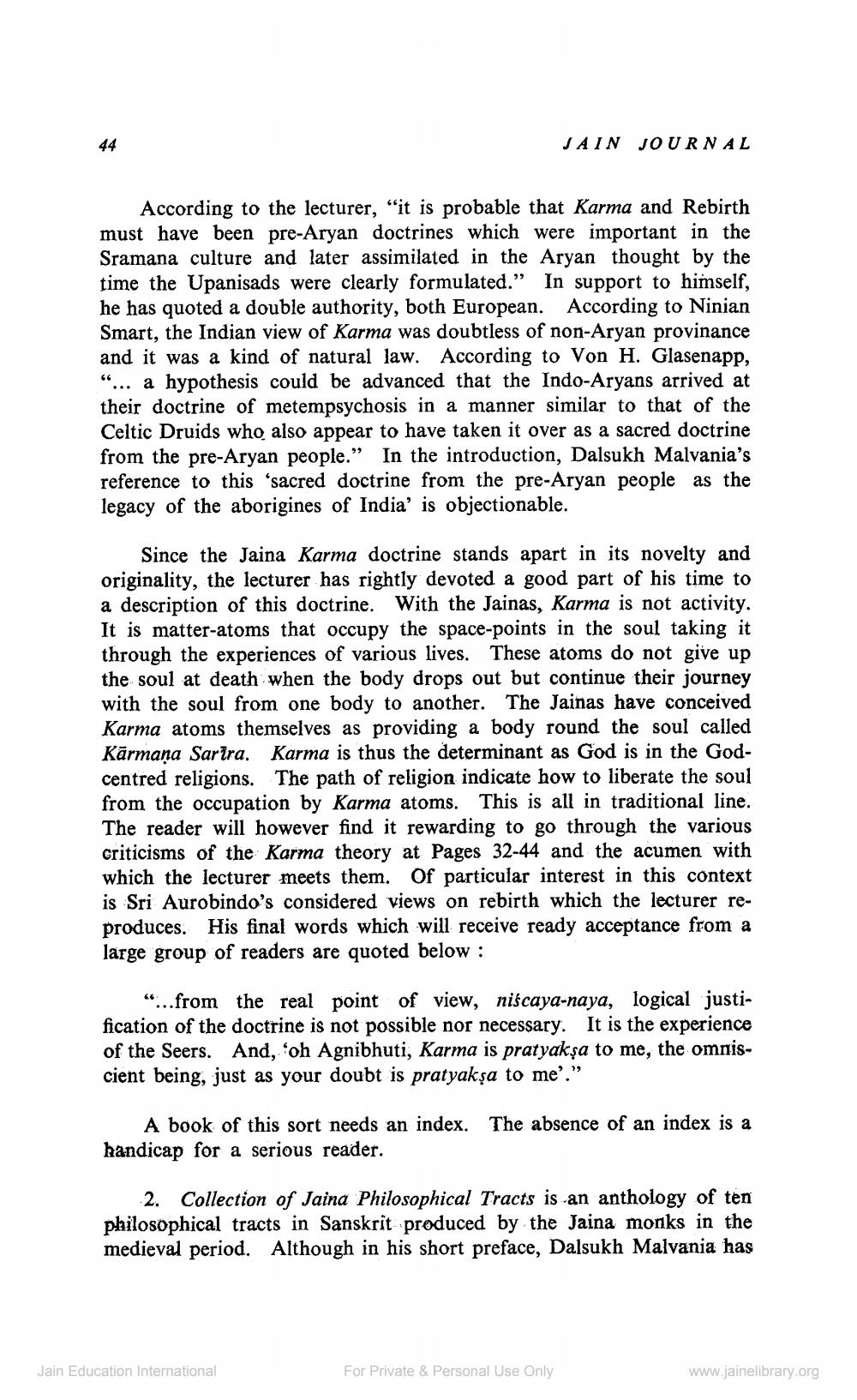Book Title: Jain Journal 1974 07 Author(s): Jain Bhawan Publication Publisher: Jain Bhawan Publication View full book textPage 4
________________ 44 According to the lecturer, "it is probable that Karma and Rebirth must have been pre-Aryan doctrines which were important in the Sramana culture and later assimilated in the Aryan thought by the time the Upanisads were clearly formulated." In support to himself, he has quoted a double authority, both European. According to Ninian Smart, the Indian view of Karma was doubtless of non-Aryan provinance and it was a kind of natural law. According to Von H. Glasenapp, "... a hypothesis could be advanced that the Indo-Aryans arrived at their doctrine of metempsychosis in a manner similar to that of the Celtic Druids who also appear to have taken it over as a sacred doctrine from the pre-Aryan people." In the introduction, Dalsukh Malvania's reference to this 'sacred doctrine from the pre-Aryan people as the legacy of the aborigines of India' is objectionable. JAIN JOURNAL Since the Jaina Karma doctrine stands apart in its novelty and originality, the lecturer has rightly devoted a good part of his time to a description of this doctrine. With the Jainas, Karma is not activity. It is matter-atoms that occupy the space-points in the soul taking it through the experiences of various lives. These atoms do not give up the soul at death when the body drops out but continue their journey with the soul from one body to another. The Jainas have conceived Karma atoms themselves as providing a body round the soul called Kärmaṇa Sarira. Karma is thus the determinant as God is in the Godcentred religions. The path of religion indicate how to liberate the soul from the occupation by Karma atoms. This is all in traditional line. The reader will however find it rewarding to go through the various criticisms of the Karma theory at Pages 32-44 and the acumen with which the lecturer meets them. Of particular interest in this context is Sri Aurobindo's considered views on rebirth which the lecturer reproduces. His final words which will receive ready acceptance from a large group of readers are quoted below : "...from the real point of view, niscaya-naya, logical justification of the doctrine is not possible nor necessary. It is the experience of the Seers. And, oh Agnibhuti, Karma is pratyakṣa to me, the omniscient being, just as your doubt is pratyakşa to me'.' A book of this sort needs an index. The absence of an index is a handicap for a serious reader. 2. Collection of Jaina Philosophical Tracts is an anthology of ten philosophical tracts in Sanskrit produced by the Jaina monks in the medieval period. Although in his short preface, Dalsukh Malvania has Jain Education International For Private & Personal Use Only www.jainelibrary.orgPage Navigation
1 2 3 4 5 6 7 8 9 10 11 12 13 14 15 16 17 18 19 20 21 22 23 24 25 26 27 28 29 30 31 32 33 34 35 36 37 38 39 40 41 42 ... 52
